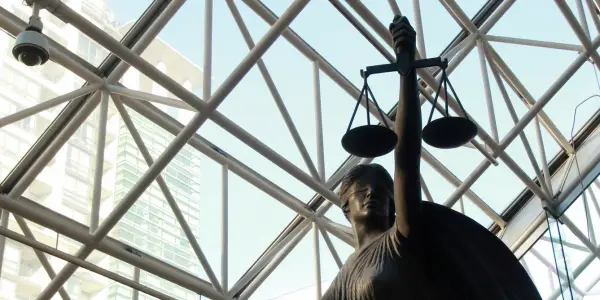Family Sues Whistler Blackcomb Owner Over Claim of Stroke Related to Vaccine

The Vancouver-based B.C. Supreme Court | Reported by Rob Kruyt for BIV
A household is taking legal action against two drug firms and multiple tiers of the government following claims that their kid suffered a stroke after receiving a COVID-19 vaccine while in Whistler.
In March 2021, Jackson Reimer got vaccinated with the AstraZeneca plc vaccine courtesy of his employer, Vail Resorts Inc. (NYSE:MTN), who owns Whistler Blackcomb. This information was found in a lawsuit filed on March 17 at the B.C. Supreme Court in Vancouver.
Jackson and his parents, Marina and Perry Reimer, have filed a legal case against AstraZeneca Canada Inc. (a Canadian company), Verity Pharmaceuticals Inc. (a licensed manufacturer of the Covishield vaccine), Vail Resorts, the federal government, and the Vancouver Coastal Health Authority (VCH).
At the time of the email from Vail Resorts, Jackson was 23 and had been employed by the company since November 2020. The Reimers' legal documents reveal that the email informed employees that the vaccine was now accessible through VCH.
The legal case mentions that during that period, Health Canada was promoting COVID vaccines, including the AstraZeneca vaccine, using the catchphrase "The initial vaccine is the greatest vaccine."
After Vail Resorts sent an email to their workers, 13 countries in the European Union stopped using the AstraZeneca vaccine. However, it still hadn't been approved by U.S. authorities.
On March 17, 2021, Jackson got vaccinated. According to the legal case, just six days after that, he called Marina to inform her that he had been encountering intense headaches, visibility loss, and giddiness.
After being taken to the Whistler Care Centre, the individual was transported to Vancouver General Hospital. At the hospital, medical professionals conducted a CT (computer tomography) scan, revealing that he had suffered a hemorrhagic stroke in his brain. Additionally, the patient needed two platelet infusions to treat their condition, as stated in the lawsuit.
Based on the legal complaint, Jackson was hospitalized in intensive care wards for a few days. His mother came to be with him after taking a flight from Manitoba.
According to the legal action, Jackson was still suffering from intense head pain and lost his vision on March 24. A day later, he became unconscious and did not respond.
Medical professionals undertook a process to halt his internal hemorrhaging. Additionally, he required intubation.
March 30 was the day when Vail, who is in charge, sent a memo to all workers, Jackson included. The memo informed them that the AstraZeneca vaccine is no longer available for those under 55. This decision was made after the vaccine caused blood clotting problems among younger people who received it.
Ever since Jackson's vaccination, which he received while in good health, he has been officially classified as blind and has difficulty with speaking. Additionally, he faces challenges with managing his time and focusing according to the litigation. Due to these difficulties, Jackson has not been able to secure employment or finish his academic pursuits.
The accusers assert that the defendants had knowledge of the suspension of AstraZeneca vaccine approvals by other governing bodies, yet they still administered the vaccine to Jackson.
According to them, Health Canada and VCH have broken a rule in the Food and Drugs Act that forbids any false or deceptive advertising or labeling practices by mixing up the vaccines in a way that made it hard for people to identify them. They also alleged that by stating that "the first vaccine is the best vaccine," they are misleading the public.
The accusations have not yet been established through legal means. At the moment, none of the people accused have provided their replies.











































